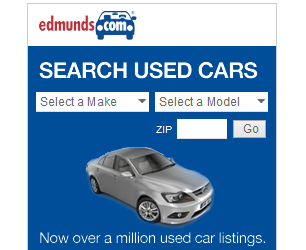10 Commonly Used Car Scams to watch out for
Valerie Raskovic

Buying a used car can be a daunting experience, especially for those who are new to the process. With so many scammers out there, it's easy to get taken advantage of. But don't worry, we've got your back. In this article, we'll expose the top 10 used car scams and provide you with the inside scoop on how to avoid them.
1. The Odometer Rollback
You've probably heard of this deceptive and highly illegal practice before. Odometer rollback is the act of manipulating the vehicle's odometer, most commonly to alter the total mileage the car was driven. Making the vehicle appear to have lower mileage may make the car more attractive to potential buyers and fetch a higher premium. It's a clever trick, but it's not foolproof. Here's how to catch them in the act: Check the odometer reading on the car's title and compare it to the reading on the odometer. Always run a VinCheckUp vehicle history report to check for the last reported odometer reading. Be wary of any vehicle that displays a higher reading on the vehicle title document or vehicle history report than on the actual vehicle odometer.
2. Hiding the Damage
Scammers will often try to hide damage to the car by covering it up with paint or body filler. But there are ways to spot the damage. Look for any signs of repairs, such as mismatched paint or uneven panel gaps. And don't be afraid to ask the seller about any damage you find. It is highly advisable that you have the vehicle inspected by a professional and trusted vehicle technician or a body shop prior to committing to the purchase.
3. False Advertising
We've all seen those ads that promise the world: "Low mileage! One owner! Never been in an accident!" But are they telling the truth? The only way to verify the validity of what the seller may have advertised is to check the vehicle condition and history. You can verify the vehicle’s current condition by having the vehicle professionally inspected. A full vehicle history report may also help uncover things that may not be obvious and clearly visible during the physical inspection. Prior events such as collision damage, flood, fire damage, government or taxi use, active liens and salvage history may not be detected during the inspection; this is why it is so important to check the vehicle’s title and run a full Vehicle History Report.
4. Phantom Car Fishing
This one's a doozy. Scammers will create a fake listing for a car that doesn't exist just to lure in unsuspecting buyers. This may be done for the purpose of robbing the potential buyer or defrauding them. But here's the thing: if it sounds too good to be true, it probably is. Always research the car's VIN and understand the vehicle’s market value by comparing comparable listings. This research will help you understand the fair private party or dealer price for the year, make and model of the vehicle you are intending to purchase and it will also help you spot when the deal is too good to be true.
5. Bait and Switch
You've found the perfect car, and the price is right. But when you go to pick it up, the seller tries to switch the car with a more expensive model. This is an old deceptive dealer technique, as they will promote one vehicle on the lot for a low price and try to persuade you to buy a more expensive model once you have arrived. Don't fall for it. Inspect the car thoroughly before making a purchase, check the vehicle VIN and make sure it's the same car that was advertised. Don’t fall for the seller’s clever selling and deceptive marketing tactics; stand firm and don’t be afraid to walk away.
6. Payment Scams
Scammers will often ask for payment in advance or try to use fake payment methods to steal your money. One of the more popular scams has to do with fake or stolen cashier’s checks. This happens when a seller might receive an offer higher than the asking price via cashier's check, with the buyer/scammer requesting the seller to send back the difference. This tactic is a scam because the cashier's check is often fake or stolen and will eventually bounce. When this happens, the initial funds leave your account and if you’ve sent back the requested difference, you’re left out of both the money you received and the extra amount you returned. Don't fall for it. Always use a secure payment method such as cash or bank transfer and never finalize the deal prior to receiving the money from the buyer.
7. Title Washing
Scammers will often wash a car's title to hide its negative history, as cars with prior salvage history, floods, and other negative events may not be desirable on the open market and demand a lower premium. But there are ways to spot a washed title. Check the car's title and run a full vehicle history report to ensure it's clean and free of any red flags.
8. False Certification
Scammers will often provide false certification, such as a fake inspection report or a false warranty. But here's the thing: if it seems too good to be true, it probably is. Always verify the certification by contacting the issuing authority.
9. Deceptive Trade-In Practices
Some less reputable dealers may entice buyers by offering an unusually high trade-in allowance on the customers’ existing vehicles. The way they can do this is by inflating the other side of the deal, such as in-house financing. Dealers may add an additional percentage to the interest rate without the buyer ever knowing that they could have gotten a better financing deal with an independent lender. Dealers may inflate the vehicle costs in subtle ways. One way that some of the new car dealers do this is to add optional accessories, which are not factored into the total cost of the vehicle until after you reach a deal. They will bury these costs in unwanted preinstalled features such as security lug nuts, PPF protection, undercoating, extended third-party warranties and more…
It has been our personal experience dealing with this type of deception at our local Acura dealer and when we requested a vehicle without those additional dealer installed add-ons, they simply said they do not sell cars without them but did offer to remove the dealer add-ons without removing the actual markup for those ad-ones. On the opposite side of that same coin, some dealers may incentivize customers with good financing offers without clearly disclosing the full vehicle purchase price and typically allow for a very low trade-in value for your old car. But don't fall for it. Research your car's value as well as the local pricing for the vehicle you intend to purchase and always negotiate the trade-in value separately from the purchase price. Keep in mind there is nothing wrong with the dealership making a profit off a sale, but the problem arises when greed drives some dealers to resort to deceptive sales tactics.
10. Buy Here Pay Here Offers
Some dealers, particularly those specializing in $5,000 vehicles, may offer in-house financing with a $1,000 or $2,000 deposit and no credit check. At first glance, this may seem like a good option, but there’s a catch. The deposit usually covers what the dealer paid for the vehicle and after that the buyer is responsible for low monthly payments.
While this arrangement may appear harmless, it can result in higher-than-average pricing. Many of these “Buy Here Pay Here” dealers provide financing terms of up to 84 months. Even if you're paying just $100 per month, you could end up spending over $9,000 on a car that’s worth just a small fraction of that total price.
Traditional bank financing generally offers better terms, but in-house financing may attract buyers with no or poor credit who don’t qualify for bank loans. This is a ‘buyer beware’ type of situation; while in-house financing might be a last-resort option for basic transportation for some, it’s usually better to seek conventional financing if you qualify.
By being aware of these commonly used car scams, you can avoid getting taken advantage of. Always do your research and don't be afraid to walk away if something doesn't feel right.
Read more articles

